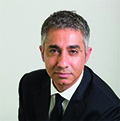Demystifying Engagement and Philanthropy Questions, Answers and Lessons to Learn – Suzanne Moorhead
Nick Jaffer from Global Philanthropic, award-winning a uthority and adviser on fundraising and capital campaigns, recently completed a national professional development tour to Educate Plus Chapters around Australia. His practical advice and valuable insights struck a chord with both experienced and new practitioners from the tertiary and independent schools sector. Nick’s masterclasses were warmly received and we will take his experience and expertise back to our own Advancement communities. We also thank the associate speaker from each state for their input and ideas.
uthority and adviser on fundraising and capital campaigns, recently completed a national professional development tour to Educate Plus Chapters around Australia. His practical advice and valuable insights struck a chord with both experienced and new practitioners from the tertiary and independent schools sector. Nick’s masterclasses were warmly received and we will take his experience and expertise back to our own Advancement communities. We also thank the associate speaker from each state for their input and ideas.
Questions to ponder
- How can your institution maximise its fundraising potential in order to achieve its vision and mission?
- Think strategically about what you want and how you are going to achieve it.
- Think about where you are now and where you want to be in the future.
Consider your goals for the next year or two.
- Is your primary focus to increase your donor base?
- If this is the case, your focus will be on engagement which will support your Giving Program and in turn lead to long term fundraising.
- Is your primary focus to raise more money?
- The answer to this scenario is to focus on seeking major gifts.
- How can we acquire innovative and creative strategies from the private and not for profit sector
- Learn from your colleagues and mentors within the Advancement community. Find those lessons from each that you can apply to your own institution. Use the Educate Plus network.
The lessons we learned
 Technology, Social Media and Engagement
Technology, Social Media and Engagement
LESSON 1: Know your constituency and your audience. Know your data base and your demographic. Where do your clients fit age-wise? We need to be tuned in to who our audience is, how they communicate and how they engage.
For those of us who work in schools whose audience is under thirty or forty years of age, know that they will be tech savvy. For those who work with an older demographic, perhaps older alumni, they may be less tech savvy.
If your school or university is on social media, a strategic and well-resourced approach is essential. Without this, the likelihood of it being seen is small. Institutions are now spending a lot more time and money to get their story out. It’s not just about the number of ‘likes’ but about how your story is shared and how people become engaged with it. Level of engagement is a better indicator of success than number of followers. A planned approach is essential to get your alumni to engage with not only with your site but with each other.
Remember…

LESSON 2: Content is king – quality matters more than quantity. Ask what stories your audience wants to see, not what stories you want them to see. Your social media posts (and magazine content) are far more engaging and effective when the material reflects what is happening in the community. A broader engagement will be achieved when you connect with the wider world.
Use social media to tell and share your constituents’ recollections. Tell their intergenerational stories, their memories of school or university, their teachers, their favourite places.…remember it’s about their stories, not your stories. Engage in a way that is meaningful to them. This is a powerful way of not only engaging alumni, but using social media to increase fundraising
LESSON 3: Use a multi channel approach to enhance your fundraising.
 SMS can take you to the next level as part of your engagement and fundraising program. Send a reminder to make a tax-deductible donation, or that Giving Day is just around the corner. Parents read SMS.
SMS can take you to the next level as part of your engagement and fundraising program. Send a reminder to make a tax-deductible donation, or that Giving Day is just around the corner. Parents read SMS.
- Email has a low response rate; use email to save money.
- Use SMS If you want to engage people and make money.
Video is an incredibly powerful means of connecting with alumni and presents a great opportunity to get people meaningfully engaged. Haileybury has demonstrated success in creating an alumni culture through engagement, using a 10-part series of personal video stories (OHA Stay Connected). This conversation has become a powerful tool across the school community, connecting alumni with staff and students, as well as being used as a teaching tool at home and in their China campus.

Adopt a multi channel approach. Do a direct mail out, but add social media. If one approach doesn’t work try something else. Again, be tuned in to your community and know how the groups like to communicate and engage. Be aware of the differences.

 Giving Days
Giving Days
LESSON 4: Online Giving Days are hard work – they require time, money and personnel. It is a very segmented process and needs a good data base. Giving Days can be an alternative to your Annual Giving Appeal and can pave the way for future Capital Campaigns.
Giving Days gained prominence during the Obama campaign and provided immediacy, feedback and success. The University of Sydney has used this strategy with great success in their 24 hour Pave the Way campaign involving staff, students, alumni and friends. The campaign engages supporters by offering them opportunities to support issues of personal relevance. Newsworthy issues such as disease, refugees, wildlife, Great Barrier Reef and Youth Mental Health research are examples.
Brighton Grammar School held a very successful 24 hour Giving Day campaign using Charidy, a fundraising service provider for not-for-profit organisations (mycause is another provider). They more than doubled their target of $200,000 raising $425,000 in 24 hours, but also doubled their donors. In 2018, with a target of $400,000 they will raise funds for their first Indigenous scholarship.
So how will your institution choose its theme or project? Look to what other stories are already out there in the media that might relate to your donors – and, of course, to your mission and vision. If your community is already aware of these issues they are more likely to become engaged with you.
Engage with neighbours and businesses around your institution. Remember to say ‘thank you’. Donors who receive thanks are much more likely to stay engaged.
Asia and International Fundraising
LESSON 5: Fundraise in Asia only if you have the time and resources. Look at where your resources are, don’t waste your money. Put your resources to best use…maybe that is at home.
Fundraising in Asia is all about building relationships and being trusted in those relationships. People need to be meaningfully engaged to give money so you need to spend time in Asia to build these relationships…at least 4 weeks a year. A trip to Hong Kong or China once a year is not enough!
There is certainly an opportunity for significant fundraising in Asia and China, more specifically. The number of high net worth individuals has surpassed the USA for the first time and the rate of growth in philanthropy is increasing, with a clear preference for giving to education. Australian and international institutions are viewed favourably due to the surety of how the money will be spent and how it will be managed. Whilst we may spend a lot of time and effort engaging with our local donors, how much time do we spend building similar relationships in Asia?
Consider who your institution may have in Asia to act as your trusted adviser and work with you in building those quality relationships long term? Perhaps an alumni or permanent staff member. If so, remember to bring them back to your institution often to keep them up to date, knowledgeable and supported. Whether you choose to engage with fundraising in Asia will depends on the quality of this person who will be the face of your institution. If you don’t have someone on the ground, consider outsourcing the role. For instance, Global Philanthropic currently supports a number of institutions in this way.
If you’re going to fundraise in Asia, consider establishing a Hong Kong Charitable Foundation to offer your donors tax-deductibility. Chapel & York’s HK Foundation for Charities facilities this through a pooled foundation, for a fee plus commission, whilst Global Philanthropic’s HK Foundation Service gives you your own foundation for a flat fee.
 Adoption Programs
Adoption Programs
LESSON 6: Offer an adoption program – think outside the square and look for ways to give donor options which have a direct impact. Adopt an athlete or rower, an Indigenous student, an artist or performer or a country boarder. Adopta Student links the donor directly with their student in an ongoing journey. Remember, donors don’t give to your institution, they give through it.
Adoption programs provide a new and different way of raising money for scholarships which are otherwise often undifferentiated, whether at school or university level. Adopta Student allows your institution to link the donor directly with the adoptee in a way that allows for further engagement.
It also allows the donor flexibility to support their own passion and interests through the type of scholarship or part scholarship they elect to provide. The Adoption Program can be taken to another level with corporate bodies adopting a school, a classroom or a special research project.
Again, this is a story about relationships and fundraising and is another great story telling option for your social media and communications network.
LESSON 7: Philanthropic support is the end product of engagement
Building a successful fundraising program is never easy and there are no short cuts. However, Nick encouraged us all to think strategically about what we want and how to achieve it, but with realistic expectations. Fundraising takes concerted time, effort and resources – but the returns make it worthwhile.
Most importantly, fundraising is all about relationships and stewardship of these relationships is essential to maintaining engagement and growing your support.
Article written with Global Philanthropic’s permission by:
Suzanne Moorhead
Writer: Education and Advancement
This article is an account of the Nick Jaffer – Global Philanthropic, Educate Plus Masterclass sessions.
No part of this article can be reproduced or distributed without the written consent of Educate Plus and Global Philanthropic.
This article can be shared on the following social media channels.
@Educate_Plus











 SMS can take you to the next level as part of your engagement and fundraising program. Send a reminder to make a tax-deductible donation, or that Giving Day is just around the corner. Parents read SMS.
SMS can take you to the next level as part of your engagement and fundraising program. Send a reminder to make a tax-deductible donation, or that Giving Day is just around the corner. Parents read SMS.






























